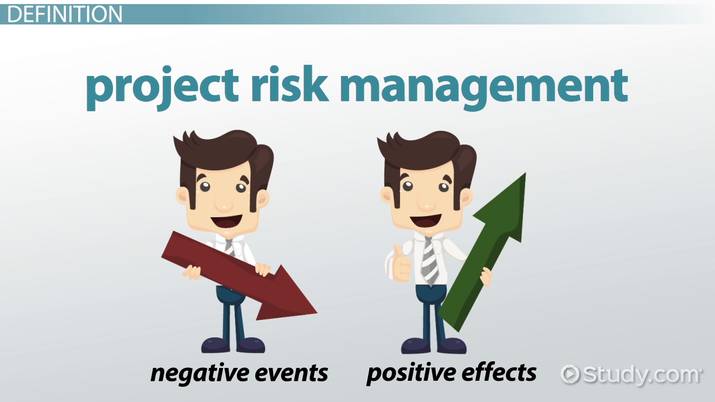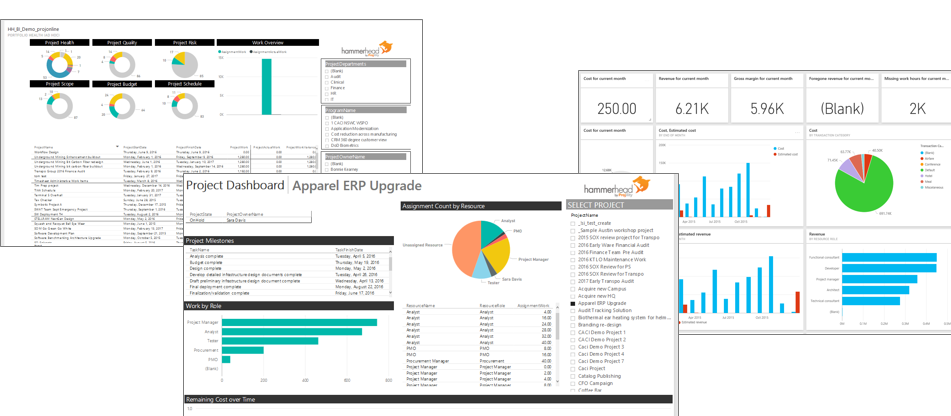
If you want to pursue a career in supply chain management, you need to earn a degree that focuses on the field. You can take on the role of leader in a business by earning a degree in supply chain management. This involves operational, tactical, and strategic levels. It also helps improve organizational performance. It requires excellent communication skills.
Project management can be considered a type of supply chain administration.
Supply chain management and project management are important aspects of any business. A project management process is one that assists you in developing and implementing a business plan. The goal of any project is to achieve the goals and meet the success criteria. The project manager is responsible for ensuring that products and/or services are delivered in a timely manner and that they meet the quality standards. Project management can bring many advantages such as increased collaboration, cost-savings, quality controls, and risk mitigation. It is not without its limitations.
Although strategy and tactics are essential, they can't be implemented without planning. Without clear direction, a strategy can go wrong and cause a project to fail. Successful implementation of supply chain projects depends on the process of project management. Project managers can create solutions and implement new strategies by following best practices.
It includes tactical, strategic, and operational levels.
There are three levels to a supply chain: operational, tactical, or strategic. The most important level for supply chain success is the strategic. This sets the foundation for all others. It involves analysing and gathering data, as well as assessing the key factors that influence supply chain performance and making decisions on the basis of that information. Although operational decisions are taken to satisfy customer requirements, strategic decisions are vital to the overall success and sustainability of the supply chain.

The strategic level describes the company's goals and strengths, as well as identifies weaknesses and formulates a vision for its future. The tactical level is responsible for executing strategies and taking specific steps to achieve them. These plans can include inventory management, production scheduling (shipping and invoicing), forecasting, forecasting, forecasting, forecasting, invoicing, and inventory management. However, some observers argue that the globalization of manufacturing has reduced the importance of tactical level and turned it into a purely strategic function.
It enhances organizational performance
The effectiveness of supply chain management in an organization is largely determined by its ability to improve organizational performance. A variety of ways can be used to evaluate and measure supply chain performance. These include customer relationship management, internal supply chain management, information sharing, and customer relationship management. These methods all contribute to improved organizational performance.
However, not all supply chains are created equal. Some organizations have never designed a cohesive supply chain structure. This results in single functions reporting to different parent functions, or even different points within a parent function. This can lead to confusion and slow down the response time for urgent issues. For example, demand planning processes may report to the supply-chain lead in one geography, but to sales leads in another. These organizational problems can result in significant inefficiencies.
It requires communication skills
For supply chain management to be successful, it is essential that you have excellent communication skills. Supply chain leaders must be able to convey complex ideas and foster collaboration. A supply chain leader must be able and willing to create accurate reports. These skills will improve your career prospects. Consider furthering your education to get certified in supply chain management.
You will be interacting with many people as a supply chain manager. This requires you to have a high level of empathy and the ability to listen actively. Your leadership style may be rejected if it lacks empathy, especially during periods of transition. You may make employees feel unappreciated or rejected if they don't understand your concerns. You must learn more about yourself, and increase your abilities.

It could lead you to a career working in supply chain management
A degree in supply chain management can open many doors to a variety of careers. Supply chain managers oversee a variety of processes, from forecasting consumer demand to the final product on the shelves. The job requires managing a complex network made up of suppliers, customers, and transport systems. For this position to succeed, supply chain managers must have a solid understanding of business management and computer sciences.
The supply chain management degree can be done online or in an actual classroom setting. The training you receive will be the same as a four-year degree program. Online programs tend to have fewer networking opportunities, but the quality of training is comparable to traditional schools. Strong analytical skills are required as well as a passion for forecasting and data analysis. A degree online will prepare you to teach others the technical aspects in supply chain management.
FAQ
What is the best way to motivate your employees as a manager?
Motivation is the desire to do well.
Engaging in something fun can be a great way to get motivated.
You can also get motivated by seeing your contribution to the success or the improvement of the organization.
For example: If you want to be a doctor, you might find it more motivating seeing patients than reading medical books all day.
A different type of motivation comes directly from the inside.
You may feel strongly that you are responsible to help others.
Or you might enjoy working hard.
Ask yourself why you feel so motivated.
Then, consider ways you could improve your motivation.
What are some common mistakes managers make?
Sometimes managers make their job harder than they need to.
They may not delegate enough responsibilities to staff and fail to give them adequate support.
Managers often lack the communication skills necessary to motivate and guide their teams.
Managers set unrealistic expectations and make it difficult for their team.
Managers may attempt to solve all problems themselves, rather than delegating it to others.
What are the steps of the management decision-making process?
Managers are faced with complex and multifaceted decisions. It involves many factors, including but not limited to analysis, strategy, planning, implementation, measurement, evaluation, feedback, etc.
Remember that people are humans just like you, and will make mistakes. This is the key to managing them. As such, there is always room for improvement, especially if you're willing to put forth the effort to improve yourself first.
This video shows you how management makes decisions. We discuss different types of decisions as well as why they are important and how managers can navigate them. These topics are covered in this course:
What is the difference in Six Sigma and TQM?
The main difference in these two quality management tools lies in the fact that six sigma is focused on eliminating defects and total quality management (TQM), emphasizes improving processes and reducing costs.
Six Sigma is a methodology for continuous improvement. This method emphasizes eliminating defects using statistical methods such p-charts, control charts, and Pareto analysis.
This method seeks to decrease variation in product output. This is accomplished by identifying the root cause of problems and fixing them.
Total quality management is the measurement and monitoring of all aspects within an organization. This includes training employees to improve their performance.
It is often used to increase productivity.
What role should a manager play within a company
There are many roles that a manager can play in different industries.
Managers generally oversee the day-today operations of a business.
He/she is responsible for ensuring that the company meets all its financial obligations and produces the goods or services customers want.
He/she ensures employees adhere to all regulations and quality standards.
He/she designs new products or services and manages marketing campaigns.
How to effectively manage employees
Achieving employee happiness and productivity is key to managing them effectively.
It also means having clear expectations of their behavior and keeping track of their performance.
Managers must set clear goals for their employees and themselves to achieve this goal.
They must communicate clearly with their staff. And they need to ensure that they reward good performance and discipline poor performers.
They also need to keep records of their team's activities. These include:
-
What did you accomplish?
-
What was the work involved?
-
Who did it?
-
Was it done?
-
Why was this done?
This information can be used for monitoring performance and evaluating results.
Why is project management so important?
Project management techniques can be used to ensure smooth project execution and meeting deadlines.
This is due to the fact that most businesses rely heavily upon project work in order to produce goods, and services.
Companies must manage these projects effectively and efficiently.
Companies can lose time, money, and reputation if they don't have a good project management system.
Statistics
- The average salary for financial advisors in 2021 is around $60,000 per year, with the top 10% of the profession making more than $111,000 per year. (wgu.edu)
- This field is expected to grow about 7% by 2028, a bit faster than the national average for job growth. (wgu.edu)
- The profession is expected to grow 7% by 2028, a bit faster than the national average. (wgu.edu)
- Your choice in Step 5 may very likely be the same or similar to the alternative you placed at the top of your list at the end of Step 4. (umassd.edu)
- Hire the top business lawyers and save up to 60% on legal fees (upcounsel.com)
External Links
How To
How can you implement a Quality Management Plan?
QMP (Quality Management Plan), introduced in ISO 9001,2008, provides a systematic method for improving processes, products, or services through continuous improvement. It emphasizes on how to continuously measure, analyze, control, and improve processes, product/service, and customer satisfaction.
QMP is a standard way to improve business performance. QMP improves production, service delivery, as well as customer relations. QMPs should cover all three dimensions - Products, Processes, and Services. If the QMP focuses on one aspect, it is called "Process." QMP. If the QMP is focused on a product/service, it's called a QMP. QMP stands for Customer Relationships.
Scope is the most important element in implementing a QMP. Strategy is the second. These elements can be defined as follows.
Scope is what the QMP covers and how long it will last. If your organization wishes to implement a QMP lasting six months, the scope will determine the activities during the first six month.
Strategy: These are the steps taken in order to reach the goals listed in the scope.
A typical QMP comprises five phases: Planning and Design, Development, Construction, Implementation, Maintenance. Below is a description of each phase:
Planning: This stage identifies and prioritizes the QMP's objectives. All stakeholders involved in the project are consulted to understand their requirements and expectations. Next, you will need to identify the objectives and priorities. The strategy for achieving them is developed.
Design: This stage is where the design team creates the vision, mission and strategies necessary for successful implementation of QMP. These strategies can be implemented through the creation of detailed plans.
Development: Here the development team works toward building the necessary resources and capabilities to support the successful implementation.
Implementation is the actual implementation of QMP according to the plans.
Maintenance: This is an ongoing procedure to keep the QMP in good condition over time.
In addition, several additional items must be included in the QMP:
Stakeholder Involvement: Stakeholders are important for the success of the QMP. They should actively be involved during the planning and development, implementation, maintenance, and design stages of QMP.
Project Initiation: The initiation of any project requires a clear understanding of the problem statement and the solution. This means that the initiator should know why they want something done and what they hope for from the end result.
Time frame: It is crucial to know the time frame for the QMP. A simple version is fine if you only plan to use the QMP for a brief period. You may need to upgrade if you plan on implementing the QMP for a long time.
Cost Estimation - Cost estimation is an important part of the QMP. You cannot plan without knowing how much money you will spend. Therefore, cost estimation is essential before starting the QMP.
The most important thing about a QMP is that it is not just a document but also a living document. It evolves as the company grows and changes. So, it should be reviewed periodically to make sure that it still meets the needs of the organization.